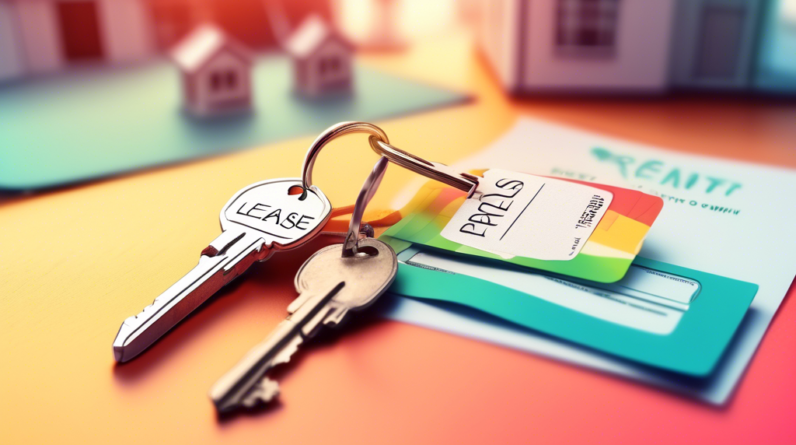
Is Rent-to-Own A Good Option for First-Time Homebuyers?
Navigating the path to homeownership can be daunting, especially for first-time buyers. With soaring property prices and stringent mortgage requirements, traditional routes often seem inaccessible. This is where rent-to-own, also known as lease-option or lease-purchase, enters the scene as an alternative pathway. But is rent-to-own a good option for first-time homebuyers? Like most financial decisions, the answer is nuanced, hinging on individual circumstances and a thorough understanding of the process.
Understanding Rent-to-Own Agreements
Rent-to-own agreements differ from conventional rentals by integrating an option to buy the property within a predetermined timeframe, typically 1-3 years. A portion of the monthly rent payment is allocated towards an option fee, securing the right to purchase the property at a pre-agreed price. Should the renter decide not to purchase the house at the end of the lease term, they forfeit this option fee.
Potential Advantages for First-Time Homebuyers
For first-time homebuyers grappling with specific challenges, rent-to-own can present several advantages:
1. Time to Improve Credit and Savings
Securing a mortgage hinges heavily on a good credit score and a substantial down payment. Rent-to-own offers a grace period to improve both. This breathing room allows potential buyers to address credit issues, reduce debt, and accumulate a larger down payment, increasing their chances of mortgage approval when the time comes.
2. Locking in a Purchase Price
In a volatile real estate market, the rent-to-own option allows buyers to lock in a purchase price at the start of the agreement. This can be particularly beneficial in a rising market, shielding them from future price hikes and potentially saving them a significant amount.
3. Test Driving the Property and Neighborhood
Unlike traditional homebuying, rent-to-own allows potential buyers to experience living in the property and neighborhood before fully committing. This trial run can be invaluable in revealing any hidden issues with the property or neighborhood that might have otherwise gone unnoticed.
Potential Drawbacks to Consider
While enticing, rent-to-own isn’t without its potential downsides. First-time homebuyers need to be aware of the following:
1. Higher Than Market Rent Payments
Rent-to-own agreements often come with higher monthly payments compared to conventional rentals. This premium covers the option fee and compensates the seller for taking the property off the market. Buyers need to carefully assess their budget and determine if these higher payments are feasible.
2. Risk of Forfeiture
Perhaps the most significant risk associated with rent-to-own is the potential forfeiture of the option fee and any rent credited toward the purchase price if the buyer backs out or fails to secure financing by the lease term’s end. This emphasizes the importance of financial prudence and realistic goal setting.
3. Maintenance and Repair Responsibilities
Unlike traditional rentals where landlords typically handle major repairs, rent-to-own agreements often shift this responsibility to the renter. This can translate to unforeseen expenses, especially in older homes. It’s crucial to have a clear understanding of these obligations within the agreement.
Is Rent-to-Own Right for You?
The decision of whether rent-to-own is a suitable path to homeownership is highly individualized. First-time homebuyers need to carefully weigh the potential benefits against the inherent risks, considering their unique circumstances and long-term financial goals.
When Rent-to-Own Might Be a Viable Option:
- You’re struggling to meet mortgage requirements due to credit issues or a limited down payment.
- You’re eager to enter the housing market but want the flexibility to back out if circumstances change.
- You desire the experience of living in the property and neighborhood before committing to a purchase.
When Rent-to-Own Might Not Be Ideal:
- You possess a good credit score and a substantial down payment, making you eligible for a traditional mortgage.
- You’re uncomfortable with the risk of potentially forfeiting your option fee and accumulated rent credits.
- You’d rather avoid the added responsibilities and costs associated with major home repairs and maintenance.
Navigating the Rent-to-Own Process: Essential Tips
If you decide rent-to-own aligns with your homeownership goals, consider these essential tips:
1. Thoroughly Research and Compare
Explore different rent-to-own properties and compare their terms, ensuring they align with your budget and long-term plans. Don’t hesitate to seek guidance from a real estate agent specializing in rent-to-own agreements.
2. Engage a Real Estate Attorney
Prior to signing any contracts, engage a real estate attorney to review the agreement’s terms and conditions. They can help identify potential pitfalls, protect your rights, and ensure the contract’s fairness.
3. Secure a Home Inspection
Just like with a traditional home purchase, obtaining a professional home inspection is crucial. This can uncover hidden problems that might result in substantial repair costs down the line. Consider negotiating repair responsibilities with the seller based on the inspection report.
4. Establish Clear Communication
Maintain open communication with the seller throughout the lease term. Regularly discuss your intention to purchase and address any concerns promptly to avoid potential misunderstandings or disputes.
5. Prioritize Credit Improvement and Savings
View the rent-to-own period as an opportunity to strengthen your financial standing. Actively work on improving your credit score and diligently save for a down payment, increasing your chances of securing a mortgage when the time comes.
Conclusion
Rent-to-own can be a viable pathway to homeownership for first-time buyers facing specific financial hurdles. However, it’s not a one-size-fits-all solution and demands careful consideration of both the advantages and potential downsides. By conducting thorough research, seeking expert guidance, and understanding the intricacies of the agreement, potential buyers can make informed decisions that align with their long-term homeownership aspirations.







